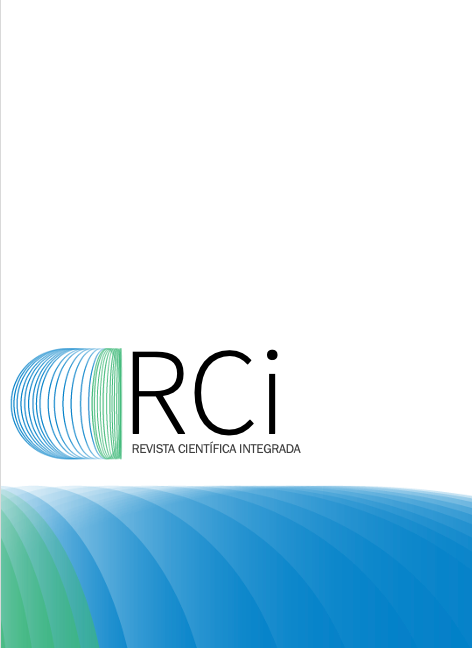Segurança de tratamentos hormonais em mulheres com síndrome geniturinária da menopausa e histórico de câncer de mama: revisão sistemática e metanálise
DOI:
https://doi.org/10.59464/2359-4632.2025.3750Palavras-chave:
Síndrome Geniturinária da Menopausa, Câncer de mama, Terapia com estrogênioResumo
Objetivo: Analisar o uso de tratamento hormonal em mulheres com síndrome geniturinária da menopausa com histórico de câncer de mama. Métodos: Trata-se de uma revisão sistemática, realizada em abril de 2025, com estudos observacionais e ensaios clínicos publicados entre 2019 e 2024 nas bases PubMed, Scopus, SciELO e BVS. Incluiu-se estudos que investigaram mulheres na pós-menopausa com diagnóstico de síndrome geniturinária, com histórico de câncer de mama, em uso de terapia hormonal. A metanálise foi realizada com modelo de efeitos aleatórios, considerando hazard ratio (HR) e respectivos intervalos de confiança. Resultados: Dos 105 estudos identificados, 10 atenderam aos critérios de elegibilidade, somando 142.717 mulheres. As intervenções mais frequentes foram o uso de estrogênio vaginal. A metanálise revelou HR combinado de 0,95 (IC95%: 0,87–1,03), sugerindo ausência de risco significativo para recorrência ou mortalidade. Estudos também apontaram melhora dos sintomas da SGM sem elevação dos níveis séricos de estradiol. Conclusão: As evidências sugerem que o uso de estrogênio vaginal em mulheres com SGM e histórico de câncer de mama é seguro quando criteriosamente indicado. A decisão clínica deve considerar o perfil individual da paciente, promovendo intervenções baseadas em evidências que favoreçam a qualidade de vida.
Referências
Valadares ALR, Kulak Junior J, Paiva LHS da C, Nasser EJ, Silva CR da, Nahas EAP, et al. Genitourinary Syndrome of Menopause. Rev Bras Ginecol Obstet [Internet]. 2022 Mar;44(3):319–24. Available from: https://doi.org/10.1055/s-0042-1748463.
Bevilacqua MRR, Costa-Paiva L, Pedro AO. Prevalence and predictors of genitourinary syndrome of menopause: a population-based study in middle-aged Brazilian women. Menopause. 2025 Feb 1;32(2):134-141. doi: https://doi.org/10.1097/GME.0000000000002467.
Beste ME, Kaunitz AM, McKinney JA, Sanchez-Ramos L. Vaginal estrogen use in breast cancer survivors: a systematic review and meta-analysis of recurrence and mortality risks. Am J Obstet Gynecol. 2025 Mar;232(3):262-270.e1. doi: https://doi.org/10.1016/j.ajog.2024.10.054.
McVicker L, Labeit AM, Coupland CAC, et al. Vaginal Estrogen Therapy Use and Survival in Females With Breast Cancer. JAMA Oncol. 2024;10(1):103–108. doi: https://doi.org/10.1001/jamaoncol.2023.4508.
American College of Obstetricians and Gynecologists. Treatment of urogenital symptoms in individuals with a history of estrogen-dependent breast cancer: clinical consensus. Obstet Gynecol. 2021 Dec;138(6):950–60. doi: https://doi.org/10.1097/AOG.0000000000004601
Hussain I, Talaulikar VS. A systematic review of randomised clinical trials - The safety of vaginal hormones and selective estrogen receptor modulators for the treatment of genitourinary menopausal symptoms in breast cancer survivors. Post Reprod Health. 2023 Dec;29(4):222-231. doi: https://doi.org/10.1177/20533691231208473.
Paraiso MFR, Ferrando CA, Sokol ER, Rardin CR, Matthews CA, Karram MM, Iglesia CB. A randomized clinical trial comparing vaginal laser therapy to vaginal estrogen therapy in women with genitourinary syndrome of menopause: The VeLVET Trial. Menopause. 2020 Jan;27(1):50-56. doi: https://doi.org/10.1097/GME.0000000000001416.
Hirschberg AL, Sánchez-Rovira P, Presa-Lorite J, Campos-Delgado M, Gil-Gil M, Lidbrink E, et al. Efficacy and safety of ultra-low dose 0.005% estriol vaginal gel for the treatment of vulvovaginal atrophy in postmenopausal women with early breast cancer treated with nonsteroidal aromatase inhibitors: a phase II, randomized, double-blind, placebo-controlled trial. Menopause 2020; 27: 526– 34. doi: https://doi.org/10.1097/GME.0000000000001497.
Streff A, Chu-Pilli M, Stopeck A, Chalasani P. Changes in serum estradiol levels with Estring in postmenopausal women with breast cancer treated with aromatase inhibitors. Support Care Cancer. 2021;29(1):187–191. doi: https://doi.org/10.1007/s00520-020-05466-1.
Prentice RL, Aragaki AK, Chlebowski RT, Rossouw JE, Anderson GL, Stefanick ML, Wactawski-Wende J, Kuller LH, Wallace R, Johnson KC, Shadyab AH, Gass M, Manson JE. Randomized Trial Evaluation of the Benefits and Risks of Menopausal Hormone Therapy Among Women 50-59 Years of Age. Am J Epidemiol. 2021 Feb 1;190(3):365-375. doi: https://doi.org/10.1093/aje/kwaa210.
Cold S, Cold F, Jensen MB, Cronin-Fenton D, Christiansen P, Ejlertsen B. Systemic or Vaginal Hormone Therapy After Early Breast Cancer: A Danish Observational Cohort Study. J Natl Cancer Inst. 2022 Oct 6;114(10):1347-1354. doi: https://doi.org/10.1093/jnci/djac112.
Mitchell CM, Larson JC, Crandall CJ, Bhasin S, LaCroix AZ, Ensrud KE, Guthrie KA, Reed SD. Association of Vaginal Estradiol Tablet With Serum Estrogen Levels in Women Who Are Postmenopausal: Secondary Analysis of a Randomized Clinical Trial. JAMA Netw Open. 2022 Nov 1;5(11):e2241743. doi: https://doi.org/10.1001/jamanetworkopen.2022.41743.
Agrawal P, Singh SM, Able C, Dumas K, Kohn J, Kohn TP, Clifton M. Safety of Vaginal Estrogen Therapy for Genitourinary Syndrome of Menopause in Women With a History of Breast Cancer. Obstet Gynecol. 2023 Sep 1;142(3):660-668. doi: https://doi.org/10.1097/AOG.0000000000005294.
Sund M, Garmo H, Andersson A, Margolin S, Ahlgren J, Valachis A. Estrogen therapy after breast cancer diagnosis and breast cancer mortality risk. Breast Cancer Res Treat. 2023 Apr;198(2):361-368. doi: https://doi.or/10.1007/s10549-023-06871-w.
Faltinová M, Vehmanen L, Lyytinen H, Savolainen-Peltonen H, Virtanen A, Haanpää M, Hämäläinen E, Tiitinen A, Mattson J. Effects of vaginal estrogen on serum estradiol during aromatase inhibitor therapy in breast cancer patients with vulvovaginal atrophy: a prospective trial. Breast Cancer Res Treat. 2025 Apr;210(2):295-305. doi: https://doi.org/10.1007/s10549-024-07564-8.
Lőczi LL, Vleskó G, Éliás M, et al. Effect of Vaginal Laser and Topical Therapies on Vulvovaginal Atrophy Symptoms in Breast Cancer Patients: A Systematic Review and Meta-Analysis. J Clin Med. 2024;13(20):6131. doi: https://doi.org/10.3390/jcm13206131.
Claes M, Tuts L, Robijns J, et al. Cancer therapy-related vaginal toxicity: its prevalence and assessment methods—a systematic review. J Cancer Surviv. 2024. doi: https://doi.org/10.1007/s11764-024-01553-y.
Benedict C, Fisher S, Kumar D, et al. Examining Associations Among Sexual Health, Unmet Care Needs, and Distress in Breast and Gynecologic Cancer Survivors. Semin Oncol Nurs. 2022;38(6):151316. doi: https://doi.org/10.1016/j.soncn.2022.151316.
Lubián López DM. Management of genitourinary syndrome of menopause in breast cancer survivors: An update. World J Clin Oncol. 2023 Jul 24;14(7):526-544. doi: https://doi.org/10.5306/wjco.v14.i7.526.
Downloads
Publicado
Como Citar
Edição
Seção
Licença
Copyright (c) 2025 Revista Científica Integrada

Este trabalho está licenciado sob uma licença Creative Commons Attribution 4.0 International License.












